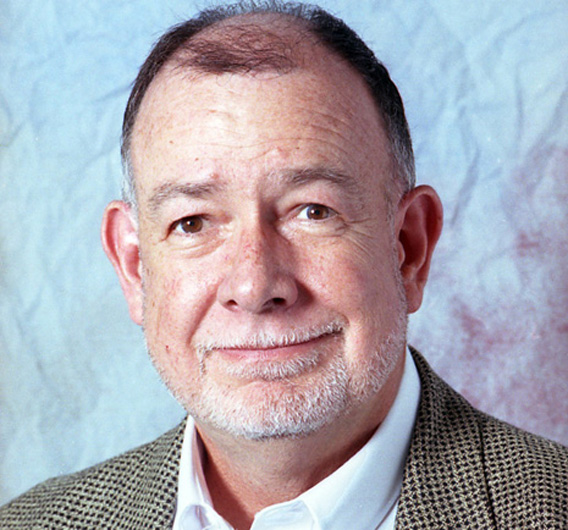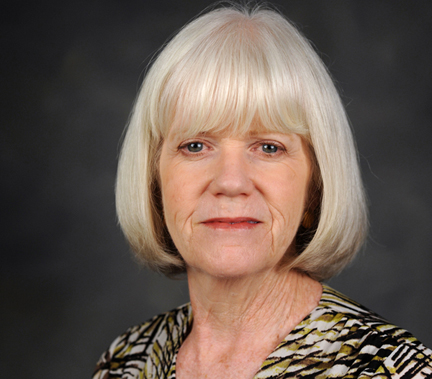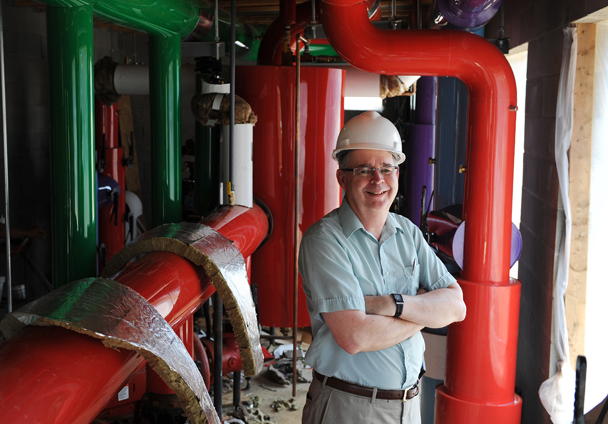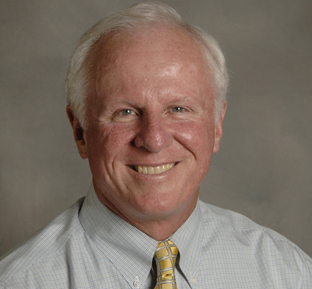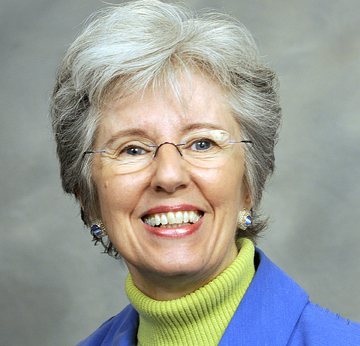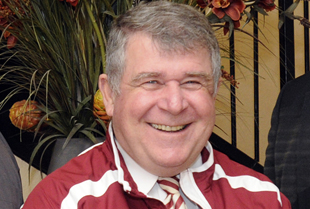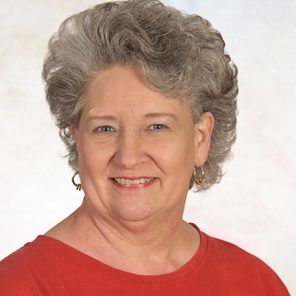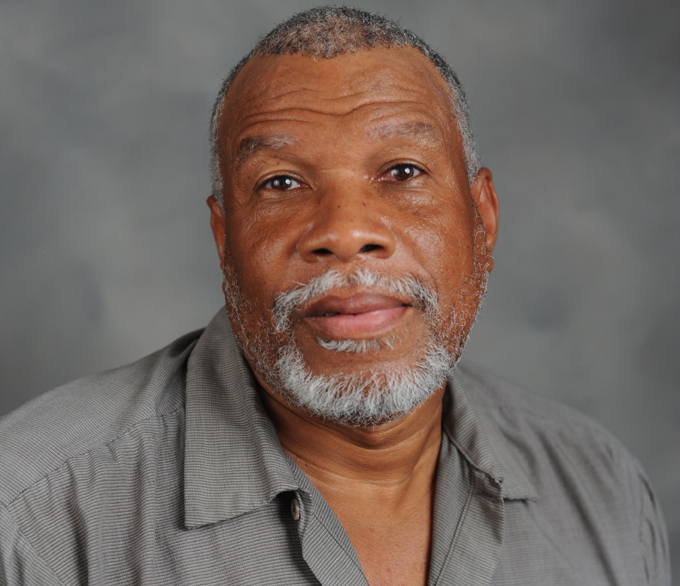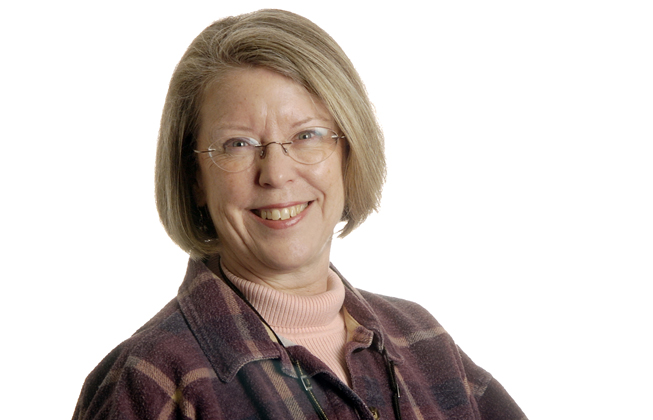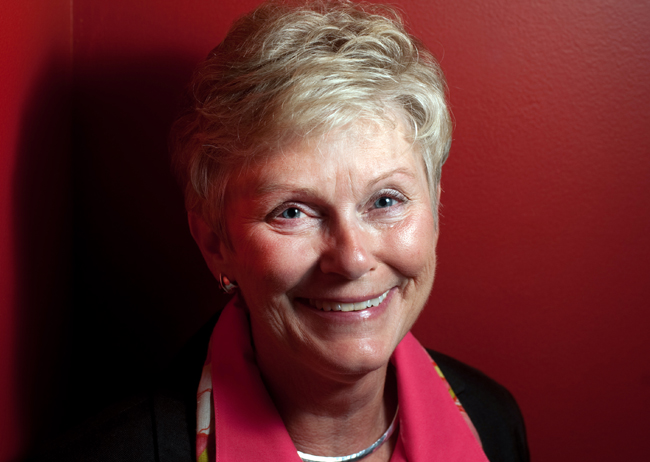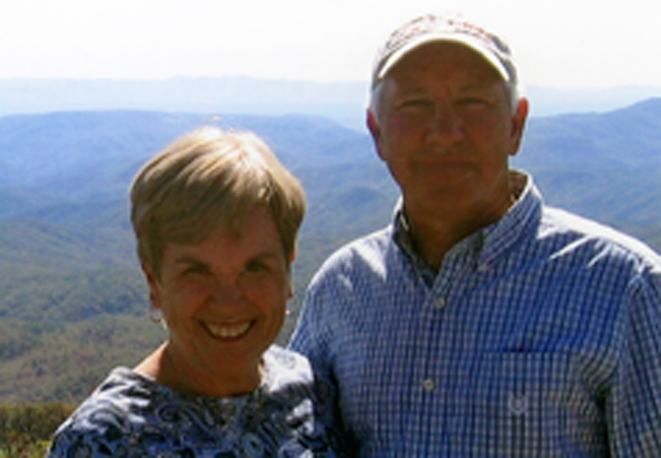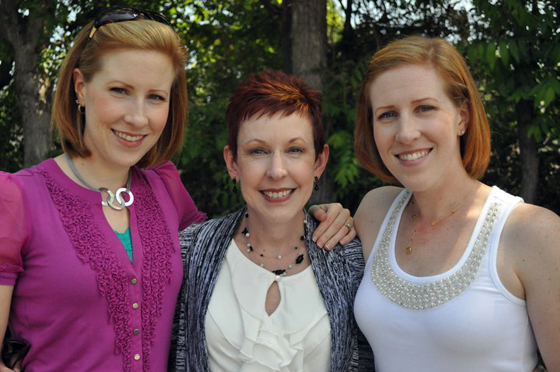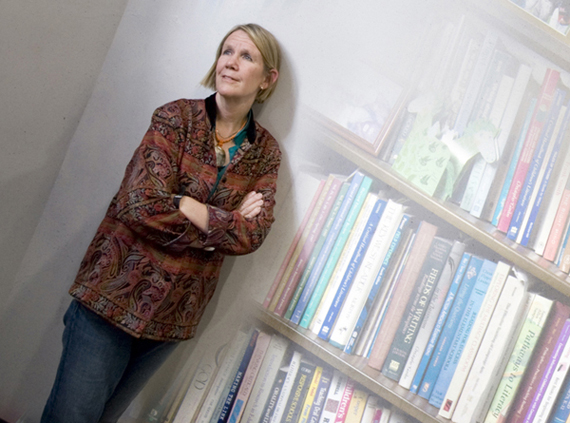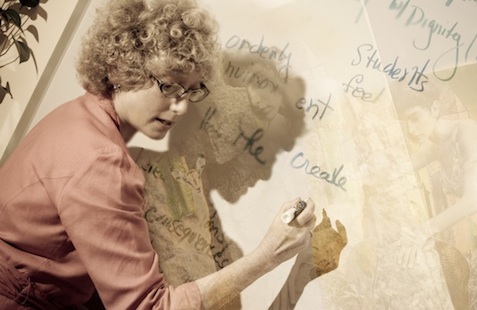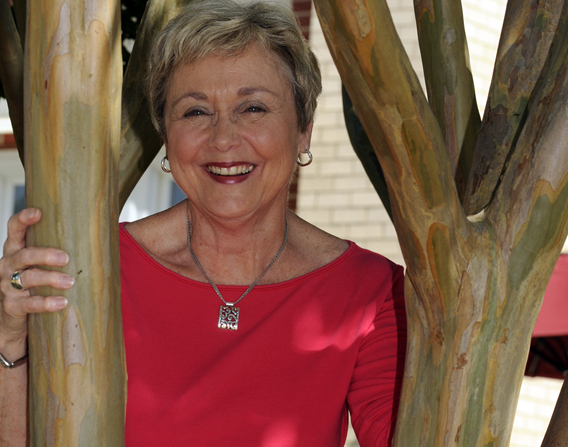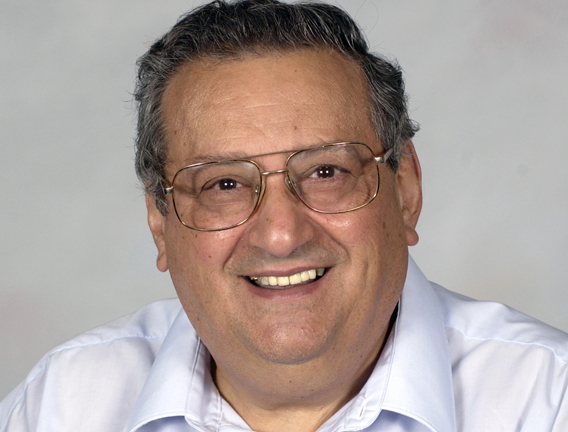Celebrate the legacy of these faculty and staff as they prepare to leave Elon and begin the next chapter of their lives.
Bob Anderson, associate professor of political science
|
|
Bob Anderson came to Elon in 1984 as assistant to President J. Fred Young, helping with the coordination and implementation of many important and transformative programs at the university.
After completing his service in that capacity, he joined the faculty in the Department of Political Science. He was not only a teacher and mentor to students in core political science courses, but his contributions extended beyond the typical classroom. He served as coordinator of Elon’s Leadership Program and for many years traveled with groups of Elon Teaching Fellows to the Washington Centre in D.C. where students gained first-hand experiences with the United States political system.
He was also one of the first and leading faculty members to fully embrace and challenge his students through Elon’s Global Studies course and one of the first in piloting the feasibility of online summer courses at Elon.
****
Pam Baker, program assistant in the School of Communications
|
|
After moving from Charlotte to be closer to her husband’s job in Greensboro, Pam Baker found out about a job opening at Elon from her sister, who was employed at the university at the time.
In 1987, she was hired as a secretary for the alumni and parent relations office. She then became the correspondence secretary for the institutional development office and eventually program assistant for the School of Communications in 2001.
Baker was part of the first group of faculty and staff to travel to London through the Teagle Grant to experience an Elon study abroad trip firsthand. She learned to speak Spanish through El Centro de Español and also went on the first faculty and staff trips to Costa Rica and Spain.
“Those trips provided some great experiences and opportunities to learn about other cultures,” Baker says. “Opportunities I might not have ever had.”
Working in the School of Communications has presented unique opportunities for Baker, too. She has met well-known media figures like Walter Cronkite, Anderson Cooper and Brian Williams, and taken part in student projects.
“I’ve been involved in skits, staff day videos and recently a cinema student’s movie trailer project as a character in the video,” Baker says, adding that the trailer was shown during the film festival at the Alamance Carousel Cinemas on May 8.
Upon retiring, Baker said she plans to enjoy working in her yard and starting projects around her house with husband Luke, who is already retired. They’re planning a road trip to the Pacific Northwest for the end of the summer.
“Elon is a great place to work, and I’m proud to have been a part for the past 25 years,” Baker says.
****
Neil Bromilow, director of planning, design and construction management
|
|
After serving for 20 years in the civil engineer corps of the United States Navy and working four years for the University of Richmond’s physical plant, Neil Bromilow came to Elon in 1995 as director of physical plant. Three years later, he became director of construction management.
“As director of construction, most of my memories are full of flames and brimstone,” Bromilow says jokingly.
Among the university’s accomplishments he most enjoyed seeing was the success of raising more than $100 million for the Ever Elon campaign.
“Raising all the money was a combination of university advancement and the office of business and finance raising all those millions of dollars so we could have all these great buildings out here,” Bromilow says.
He also enjoyed being a part of the construction of Lindner Hall, a LEED-certified building and the university’s first project of its kind.
“The sustainability and solar features on the roof raised a lot of additional issues with that building that we hadn’t touched before,” Bromilow says. “It was also kind of a keystone culmination of the Academic Village being built over a period of years. When Lindner came along, it finally made it look like a quad.”
Bromilow says he is taking a sabbatical to “figure out what (he’ll) do after being on sabbatical,” but appreciates the memories from his time at Elon.
“I’ll miss the smell of the gunpowder and the excitement of taking on a new project, getting it designed and built and turning it over,” Bromilow says.
****
Jim Drummond, associate professor of sport and event management
|
|
Jim Drummond worked as the assistant director for Tennessee State Parks before teaching at Auburn University for 10 years while earning his doctorate from Virginia Tech. He came to Elon in 1987 and began teaching in the health, physical education and recreation department, which re-organized to become recreation administration.
After a run as leisure and sport management, the department became sport and event management and moved to the School of Communications from the School of Education.
Since coming to Elon, Drummond has been involved with the Alamance County community through the Special Olympics, serving on the Alamance County and City of Burlington park and recreation advisory committee and serving in various capacities for the North Carolina Recreation and Parks Association.
Some of Drummond’s best memories at Elon are watching Elon football on fall afternoons, “sitting on comfortable seats” once Alumni Gym was renovated and playing golf with a core group of 25-30 colleagues. He is also proud of his department’s establishment six years ago of a scholarship, which now has more than $100,000.
He hopes to start checking off items on his bucket list now that he is retiring, and plans to garden, start hunting and fishing again, play lots of golf, read the books stacked up on his chair at home, begin woodworking again and travel more with his wife, Brenda, who is retiring in December.
“I’m going to play for next 40 years,” Drummond says. “I’ve been studying leisure my entire life, and I intend to do it now. I certainly have a long bucket list, so I’m going to stay very, very busy.”
****
Sandra Fields, assistant to the president
|
|
Before coming to Elon,Sandra Fields taught French at Grimsley High School in Greensboro for five years, until her first daughter was born. A few years after her second daughter started elementary school, Fields began working part-time as a secretary to the pastor at her church.
An Elon College trustee, her pastor knew that Evelyn Campbell, former secretary to the president, was leaving and recommended Fields for the job in 1994.
“Fred Young called and asked me to come in for an interview,” Fields recalls. “That’s the way it began.”
While at Elon, her job as assistant to the president has allowed Fields to meet a number of dignitaries who have come to the university as guest speakers, one of the perks of the position, she says.
“I’ve met them, shaken their hands, helped them put on their hoods and been close enough to see them as people rather than as icons,” Fields says. “That’s been fun.”
Among the most notable to her were Queen Noor of Jordan, “simply because she was royalty;” Benazir Bhutto, who was “so tragically assassinated after coming to Elon;” Bill Clinton, whose “personal magnetism” Fields experienced firsthand in conversation; Madeleine Albright, “a female tower of strength;” and George H. W. Bush, “who have helped shape the world we live in.”
Fields says she will be spending more time with her two daughters and four grandchildren and is intentionally postponing decisions about how to spend her time post-retirement.
She is proud to see how far the university has come in her almost-18 years of working at Elon, and says she has enjoyed the experience of working with two visionary presidents who have moved Elon forward.
“When I came here, Elon was not even in the U.S. News and World Report magazine,” she says. “To be all the way up now at the number two spot shows you what sort of progress I’ve been fortunate to watch. I’m really pleased to have been able to help make it happen.”
****
Chuck Gantos, director of campus safety and police
|
|
After retiring as a manager at AT&T for the petroleum industry vertical market, Chuck Gantos was hired as the director of the university’s first campus police department in 1996.
“I’d been on the city council and lived in Elon for many, many years,” Gantos says. “I had been on the fire department for 20 years and was very familiar with Elon itself and they were looking to start a program. I had an emergency services background that fit into what Elon wanted.”
The university started its police department in January 1996. In August of that year, it received state certification and became operational.
“I’m proud of our police department,” Gantos says. “We have one of the best campus police departments in the state. I’m proud of the officers and the staff for supporting us.”
Gantos said one of the most important additions his department made was the installation of video cameras in all campus parking lots — the technology for which is “second to none.” The cameras were installed in 2006 after the Student Government Association passed a resolution approving them.
He has no specific plans for what to do once he leaves, but said he and his wife, Chere, who will also be retiring this year, will wait and see which direction to move next.
One thing is for sure: He will miss the time he has spent at Elon.
“There isn’t any question,” he says. “The people here at Elon are just fantastic — the faculty, staff and students. That is, in my opinion, our greatest resource: the people.”
****
Irene Gibson, part-time circulation clerk
|
|
Irene Gibson worked in the human resources department at AT&T until coming to work part-time for Elon’s human resources department in 1999. She also began filling in as circulation clerk in Belk Library, splitting many days between the HR department and the library. Gibson said she loved her work in both places.
“I went to the library and I just really like anything about libraries,” Gibson says. “I love books and movies, so I enjoyed being at the library.”
Gibson says her favorite part of working in the library was meeting the different people who came in on a daily basis, including members of the community whom she would give daily passwords to access the computers.
“I loved meeting all of them,” Gibson says. “I’m a people person so I just enjoyed the interaction with others.”
Gibson says she decided to retire in order to take care of her husband, William, who is now in a rest home, but said she will miss all the people with whom she worked.
****
Dan Headen, sanitation/recycling worker
|
|
Dan Headen has worked in the Physical Plant Department in Environmental Services as a sanitation/recycling worker for almost 20 years.
Support Services Supervisor Wayne Brown says Headen always made it to work on time, except for one day when a big snowstorm kept him – and many other staffers – away from campus. But the storm simply delayed him; he still show up to work later on that day.
“He was always dependable,” Brown adds.
Co-worker Leon Knight says Headen was a great friend who helped him out when he arrived at Elon, always sharing information about where buildings were or how to get something done.
At the annual Physical Plant Staff Appreciation lunch, Headen always enjoyed shooting pool with other staff members.
Besides his involvement at Elon, Headen helped out at his church in Graham, where he lives with wife Carol. The couple has two children, Nicholas and Teresa, and one granddaughter, whom they love dearly.
****
Kate Hickey, dean and university librarian
|
|
Kate Hickey has worked as a librarian in some form for 43 years. She served as the library director at the Pennsylvania College of Technology, worked in public libraries and at a federal fisheries research laboratory and library before coming to Elon.
“When I came to Elon for the interview, I came when the azaleas and dogwoods were in bloom,” Hickey says. “Need I say more?”
By far, she says, her largest project since being at Elon was the designing and building of Belk Library, which her department moved into in January 2000.
She has enjoyed assisting Jim Drummond as the marshal during Commencement, listening to Jane Goodall and Desmond TuTu speak and meeting Doris Kearns Goodwin.
“The nice part about being a library dean is usually you can wrangle an invitation to meet people,” she says.
What she has been most proud of in the development of Elon’s library is its continual use by students.
“This building is full of students from morning to night,” Hickey says. “That is not true of many academic libraries today.”
Hickey said her post-retirement to-do list includes bird watching and traveling, but most of all enjoying life at a slower pace.
“I’m going to repeat something one of my retired friends said,” Hickey says. “The first thing I’m looking forward to is getting up in the morning, reading the entire paper and doing a crossword puzzle before I even have to think about what I’m going to do next.”
****
Earl Honeycutt, professor of marketing
|
|
A retired Air Force Colonel, Earl Honeycutt taught at the University of North Carolina at Wilmington and Old Dominion University before coming to Elon. Moving to the area to be closer to his son in 2001, Honeycutt was hired at Elon as a full-time professor.
He received Elon University’s Distinguished Scholar Award in 2008 and was named the first Martha & Spencer Love Term Professor in 2011, an award granting Honeycutt a five-year renewable professorship. He helped institute, and currently directs, the Chandler Family Professional Sales Center.
Among the transitions Honeycutt said he most enjoyed being a part of while at Elon was the School of Business’s move into a brand new building and the breaking apart of the business administration department into smaller sections based on discipline.
“It was really nice to move in after having no offices or classrooms for five years, so to speak,” Honeycutt says.
Honeycutt has led study abroad trips to Europe, Africa and Asia, and plans to continue traveling around the United States and Europe with his wife upon retirement. He said he would spend time at his beach house in Wilmington and with his three grandchildren.
Despite retiring, Honeycutt plans to remain involved with the sales center “as needed and on an invitational basis,” and plans to revise one of his textbooks for a new edition.
****
Susan Klopman, vice president for admissions and financial planning
|
|
Susan Klopman doesn’t just consider Elon a place of work – it’s her life project.
After all, she has spent the past 27 years working here. She began her career in 1985 as assistant director in Elon’s Department of Publications and Public Relations. She later became director of foundation and corporate relations in the development office before joining the president’s office in 1993, serving as assistant to President J. Fred Young and the board of trustees.
In 1996, Klopman joined the admissions office as assistant dean, overseeing the application reviews, and annual communications with more than 60,000 prospective students. She was named dean of admissions in 2000 and was promoted to vice president for admissions and financial planning in 2006.
In her latest role, Klopman oversees all of the gateways into the university. She has reshaped the admissions process, changing it from operating on a rolling deadline to straight deadline admissions.
“Whenever your system increases exponentially, you often can’t do things the way you’ve always done them,” she says. “You can only grow doing the same thing so much, and then you have to rethink.”
As a result, she has worked to re-invent how admissions decisions are made, which she says is now much more complex and challenging. The number of applicants has almost doubled.
Klopman says that her peers at Elon, who are worth her time and best efforts, have positively impacted her.
“The people of this university have always been there to say ‘you can do it, step out, take a risk,”” she says. “Through this, I have had a voice in the growth and development of this university and what an incredible opportunity it has been.”
****
Pat Long, program assistant to political science, philosophy and religious studies
|
|
For as long as Pat Long can remember, Elon University has been a part of her life. She was first introduced to Elon as a child, while visiting her aunt who lived across the railroad tracks. Several of her relatives, including her husband and daughter, attended the university.
Still, she never seriously considered working on campus until much later in her career.
“I worked in the guidance office at Western Alamance High School,” she recalls. “My children attended school there and when my daughter came to Elon, I thought I’d better not follow her to college.”
Currently the program assistant for the departments of political science, philosophy and religious studies, Long arrived in 1992 and has experienced the vast number of changes Elon has undergone in the past two decades.
“When I first came, email had just been implemented and we really didn’t depend on it,” she says. “You would send an email and put a hard copy in the campus box as well.”
Having worked in a high school setting, Long said she has most enjoyed her interactions with students. She is also taking with her memories of the faculty and staff she’s gotten to know.
“I’ve been very thankful to have had the opportunity to work here at Elon,” Long says. “Just working in a university is a learning experience in and of itself.”
****
Phyllis Phillips, administrative assistant in the School of Communications
|
|
During the more than two decades Phyllis Phillips has spent on Elon’s campus, she has witnessed firsthand some of the major changes enveloping the university.
She began working in the office of the School of Communications in 1991, when it was housed in the Fine Arts building, and interest in personal computers was just taking off.
“In just the short time I’ve been here, it’s just constantly changing and growing and getting better,” she says. “The sheer magnitude of size [the school] has achieved and the technology, it’s grown by leaps and bounds.”
Though she ends her time at the university as administrative assistant in the School of Communications, her career was also marked by periods in the office of presidents J. Fred Young and Leo Lambert and the Office of Advancement.
“What I’ll take away are the friendships I’ve made,” she says. “The people I’ve laughed with, cried with, shared friendships with.”
What she’ll also leave with are memories of the dignitaries she’s had the chance to meet, including Walter Cronkite, Margaret Thatcher and Brian Williams.
And while she plans to travel and spend time with family after officially retiring, she’s not quite completely done with Elon and the close group of friends she’s made here.
“I only live a mile and a half away,” she says. “I’ve threatened to walk over here and harass them and then go home.”
****
Bird Stasz, Associate Professor of Education
|
|
Bird Stasz’s career in the classroom has included everything from teaching in a three-room country schoolhouse in Vermont to instructing prisoners.
But Stasz will wrap up her 42-year career at Elon, where her 10 years has included relationships with countless students and time in Tajikistan thanks to the Fulbright program.
“My students are fantastic,” she says. “I’ve done the other stuff – published papers and written a book. But when I think of the two or three things here, it’s my students and of course my Fulbright, which was a big accomplishment for me personally and an opportunity to really benefit my students here and colleagues abroad.
“Intellectual life and research aside, my passion has always been my gang. I love them and I will miss them very much.”
She says she has appreciated the vision for the university presented by various administrators during her more than a decade at Elon.
“I’ve been very lucky because I’ve enjoyed not only being a part of the School of Education, but also the university as a whole.”
Having been awarded emerita status, Stasz says she will not be 100 percent absent from Elon and will keep up her relationship with the university and help out when needed.
“There is a lot of writing I haven’t had a chance to do,” she says, “and reflecting on what’s the vision of education, where are we going, how can we leverage teaching people how to teach.”
****
Carolyn Stuart, associate professor of Education
|
|
Carolyn Stuart arrived at Elon University in 1996 just as the Special Education program was taking off, bringing with her years of experience working in school systems.
“It’s really been wonderful to see the path Special Education has taken,” she says. “We have developed the program now to be a dual-licensure program so that our students who decide to major in Special Education choose a second area of licensure.”
She also enjoyed witnessing the development of relationships between the university and local public schools.
Right before arriving at Elon, Stuart worked with special needs children in an assessment center affiliated with the medical school at the University of North Carolina at Chapel Hill.
“While it was intellectually engaging and emotionally satisfying to help families, I didn’t have any ongoing relationships with children as I had when I was teaching,” she recalls.
Her transition to Elon has allowed her to build those relationships with her students, including watching them mature intellectually and psychologically during their crucial college years.
“When you see students over a 3-4 year period, there is such strong development and growth,” she says. “It’s amazing to think where the seniors that I’m now supervising for their student teaching were 2-3 years ago, as far as developing skills and an understanding for how complex education is.”
Stuart said she will miss both the disciplined thinking that comes with academic research as well as the people she’s met at Elon.
“I’m looking forward to being able to not have every hour and every second of my day planned,” she says. “I want to have some time that is open to see what comes up and what I might want to do.”
****
Catherine Williams, associate director of admissions and director of transfer admission
|
|
After staying home with her daughters while they were small, Catherine Williams decided to make a career change and accepted a job in admissions in 1988.
As director of transfer and special admissions for many years, she has enjoyed the contact with incoming students.
“I got to know many of them well as I counseled them on which courses to take and how to prepare for acceptance to Elon,” she says. “Many people do not know that we bring in about 130 transfers each year, along with about 75 readmits and special students. It was always a joy to see them move in each August. New student convocation has always been my favorite event at Elon, as we welcomed them into the Elon family.”
Planning many admissions events such as Fall and Spring Open Houses and Fellows Weekends through the years enabled Williams to work with almost every office on campus. Elon faculty and staff take admissions event very seriously, and she said it has been a pleasure to work with them.
“When I retire, I look forward to spending more time with my family, traveling, reading, and not having to work Saturdays,” she says. “I never dreamed almost 24 years would fly by like this. That’s what happens when you’re having fun and working hard.”
****
Rudy Zarzar, professor of political science
|
|
When Rudy Zarzar arrived at Elon in 1967, he had no intention of staying this long.
In the process of writing his dissertation as a student at the University of North Carolina at Chapel Hill, Zarzar accepted a part-time position intended to last for one semester. Instead, it turned into a permanent tenure at the university.
“Elon was not what it is today,” he says. “My job here was supposed to be temporary, but then Elon began to improve tremendously. In fact, it did undergo almost a metamorphosis. And the more it grew, the more appealing it became.”
The relationships he has built with his students is the most memorable aspect of the 45 years he has spent in the department of political science, Zarzar says.
“Helping students, touching the lives and minds of students was most rewarding at Elon,” he says. “My top joy was really being with students. Helping developing people is quite rewarding to me.”
Preferring not to specialize in any one topic, Zarzar has taught numerous courses at Elon, ranging from American government to foreign policy in the United States to International Terrorism.
“This is an institution that many people would find very rewarding in more ways than one,” he says. “The sense of community that it nurtures both locally and globally, opportunities for service it offers its faculty and students and its commitment to diversity.”
Zarzar says he is looking forward to traveling and investing in hobbies such as photography and gardening, characterizing himself as “not a person to retire and sit down and be a couch potato.”
****
Also retiring this year but not featured in this story are student account analyst Karen Hughes, accounts payable analyst Carolyn Moore and library clerk Sherley M. White.
By Caitlin O’Donnell ’13 and Natalie Allison ’13



